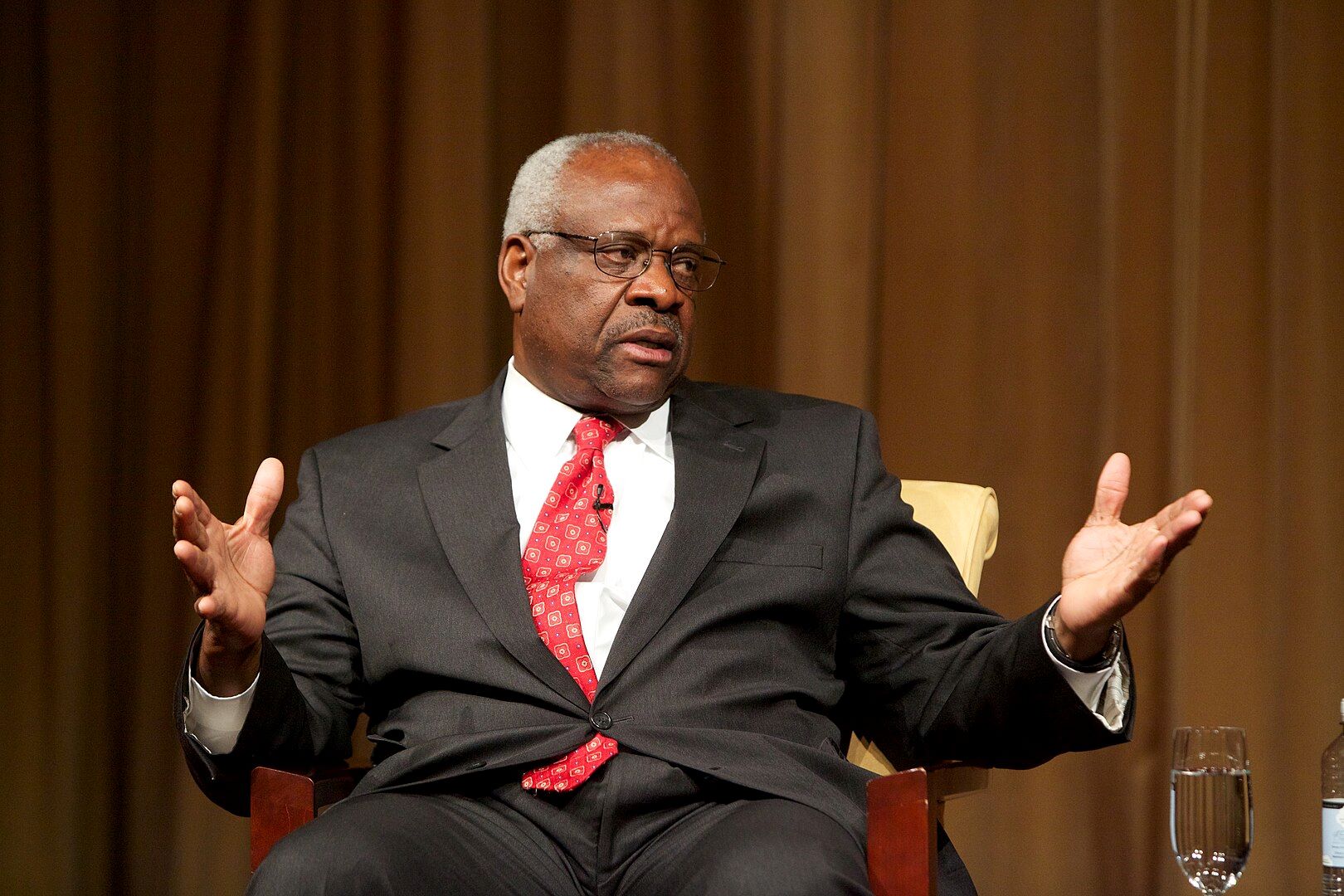WASHINGTON (CN) — Justice Clarence Thomas used his concurring opinion in Monday’s presidential immunity decision to cast doubt on the role of the special counsel, raising further questions on current methods to hold the nation’s executive accountable.
Thomas’ concurrence also comes as U.S. District Judge Aileen Cannon, the federal judge in charge of Donald Trump’s classified documents case, weighs a motion by Trump’s lawyers challenging the legality of the special counsel role.
While the question was not at issue in the immunity case, legal experts note that by going off on his own to say that the special counsel violates the Constitution’s appointments clause, Thomas opens additional avenues for Trump’s lawyers in Florida and in Washington to further slow the already struggling federal cases.
The special counsel is an independent prosecutor appointed by the attorney general and operates independently while using Justice Department resources. The role was created in 1999 to replace the preceding independent counsel, which could be appointed by a special panel of the D.C. Circuit Court of Appeals and drew criticism for its seeming lack of accountability.
Today, there are three special counsels, Jack Smith, in charge of Trump’s election subversion and classified documents cases; Robert Hur, in charge of President Joe Biden’s classified documents case; and David Weiss, in charge of Hunter Biden’s gun possession case.
Thomas sided with his conservative-appointed colleagues Monday to grant presidents far-reaching immunity from criminal prosecution for their “official acts,” and echoed in his concurrence a concern Chief Justice John Roberts shared in the majority opinion that denying immunity threatened “our constitutional order.”
He said he wrote separately to highlight his concern that the special counsel role had not been “established by law” and conflicts with the system of checks and balances meant to restrict the president from creating offices at will.
“If there is no law establishing the office that the special counsel occupies, then he cannot proceed with this prosecution,” the George H. W. Bush appointee wrote. “A private citizen cannot criminally prosecute anyone, let alone a former president.”
Mary McCord, former acting assistant attorney general for national security in 2016 and 2017 and executive director of the Institute for Constitutional Advocacy and Protection at Georgetown Law, said in an interview that Cannon, a Trump appointee, may take Thomas’ concurrence into account.
“If she were so inclined, Judge Cannon could look to that to help inform her on making a decision about the pending motion,” McCord said. “However, she really should not, it’s one justice, it’s not binding, it’s not even persuasive authority.”
While proceedings in Washington before U.S. District Judge Tanya Chutkan have yet to resume following the high court’s decision, McCord said it is likely that Trump’s lawyers would file a similar motion in the case.
That would likely add another issue for the Barack Obama appointee to address before any possible trial, on top of applying the official or unofficial act analysis the high court created in Monday’s majority opinion.
McCord said Thomas’ concurrence may have some impact across the street on Capitol Hill, where House lawmakers have clashed with special counsels Hur and Weiss over their respective investigations.
Those clashes came to a head on Monday, when the GOP-led House Judiciary Committee sued Attorney General Merrick Garland to compel the production of audio tapes from Hur’s interview of Biden.
McCord said that lawmakers could schedule hearings to debate the points made by Thomas to clear up the question of how a special counsel should be appointed, or otherwise bring it to an end.
In his concurrence, Thomas acknowledged the appointments clause creates an exception for certain department heads, like the attorney general, to appoint inferior offices like the special counsel’s. However, he pointed out that the office itself must first be created by Congress via statute.
He drew a comparison to English monarchs’ ability to appoint officers and create offices as they wished, which the Founding Fathers sought to avoid when drafting the powers of the president.
“By keeping the ability to create offices out of the president’s hands, the founders ensured that no president could unilaterally create an army of officer positions to then fill with his supporters,” Thomas wrote. “Instead, our Constitution leaves it in the hands of the people’s elected representatives to determine whether new executive officers should exist.”
Carrie Severino, president of the Judicial Crisis Network and former law clerk to Thomas, said in an interview that Monday’s opinion was a “classic Thomas concurrence.”
Severino said Thomas has a history of flagging a certain issue that wasn’t otherwise addressed in cases like the immunity question, where the majority decided on one particular issue.
“Historically, in a lot of those cases, that issue ended up percolating and it got people thinking about it or it got people recognizing that maybe they hadn’t noticed this discussion before and now realize this is a serious issue we need to take into account,” Severino said.
Subscribe to Closing Arguments
Sign up for new weekly newsletter Closing Arguments to get the latest about ongoing trials, major litigation and hot cases and rulings in courthouses around the U.S. and the world.









